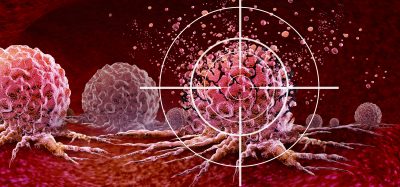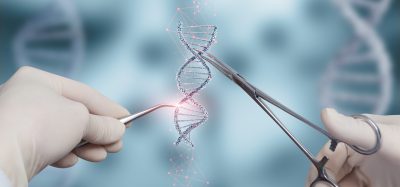New therapy for incurable brain disease heads to clinical trials
Posted: 19 June 2025 | Drug Target Review | No comments yet
SynaptixBio has selected its lead drug candidate, SB H-19642, for clinical trials to treat H-ABC – a rare, fatal neurodegenerative disease with no current cure.


Oxford-based biotech company SynaptixBio have reached a major milestone in its mission to treat H-ABC – a rare and currently incurable neurodegenerative disease. The company have announced the selection of SB H-19642, an antisense oligonucleotide (ASO) therapy, as its lead drug candidate for upcoming clinical trials.
ASOs are short strands of synthetic DNA designed to silence mutated genes, preventing the production of harmful proteins. In the case of H-ABC, the approach shows potential for stopping disease progression and even reversing some symptoms.
“This is a hugely significant milestone,” said Dr Dan Williams, CEO at SynaptixBio.
“We are confident our candidate drug will deliver the same positive impacts that ASOs have made on other degenerative diseases such as Duchenne muscular dystrophy.”
Targeting the root cause of H-ABC
SB H-19642 has already shown encouraging results in preclinical animal models, with a marked reduction in the toxic proteins produced by the mutated gene.
SB H-19642 has already shown encouraging results in preclinical animal models, with a marked reduction in the toxic proteins produced by the mutated gene.
“The dangerous proteins produced by the single-gene mutation that causes H-ABC, the most severe form of TUBB4A-related leukodystrophy, have been shown in animal testing to be far less prevalent following treatment,” Williams explained. “This means disease progression could be completely halted, and there is some evidence of symptoms being reversed.”
ASOs bind to the messenger RNA (mRNA) produced by faulty genes, blocking the production of the harmful proteins at source. This makes them different from traditional drugs that only treat downstream symptoms.
Safety, stability, and strategic partnerships
SynaptixBio has collaborated with global drug discovery firm Evotec to identify and develop the ASO candidate. Early-stage testing has shown SB H-19642 to be safe, stable and effective at lowering levels of the disease-causing protein.
Unlike gene editing, ASOs are non-permanent, highly targeted and produce fewer side effects. This makes them favourable for treating rare and complex neurological conditions.
“Perhaps most importantly, ASOs target the molecular causes of disease, rather than just treating the symptoms,” said Williams. “This makes them potentially game changing.”
A growing market for ASO therapeutics
The announcement comes amid rapid growth in the ASO therapeutics market. A May 2024 report from Global Market Insights valued the market at $4.4 billion in 2023, with projections that it will reach $19.7 billion by 2032.
Key drivers include the rise in neurodegenerative and genetic disorders, advancements in gene-targeting technologies and increasing regulatory support. ASOs are already approved for SOD1-dependent ALS and are undergoing trials for Alzheimer’s and Parkinson’s diseases.
Advocacy and early diagnosis: critical to progress
Public awareness is also playing a crucial role in advancing rare disease research. Williams praised the work of the UK-based H-ABC Foundation, which has helped bring much-needed attention to the condition.
“Here in the UK, the H-ABC Foundation has done a remarkable job in just a few years of raising awareness amongst the public and in the medical community of the devastating impacts this disease has on those affected and their families,” he said. “It is particularly important that such rare diseases are identified as early as possible; delayed and misdiagnoses can lead to years of unnecessary suffering.”
Backed by innovate UK for clinical development
SynaptixBio’s work has been supported by substantial government funding. The company recently received a £2 million BioMedical Catalyst grant from Innovate UK to advance SB H-19642 into first-in-human clinical trials. This follows a previous grant in November 2023 to broaden its rare disease therapeutic discovery efforts.
With a promising candidate drug and growing momentum behind ASO therapeutics, SynaptixBio is now looking to lead the development of a potentially transformative treatment for one of the most devastating genetic leukodystrophies.
Related topics
Central Nervous System (CNS), Clinical Trials, Drug Development, Drug Discovery, Neurosciences, Orphan drugs, Therapeutics
Related conditions
Brain disease
Related organisations
SynaptixBio
Related people
Dr Dan Williams (CEO at SynaptixBio)








